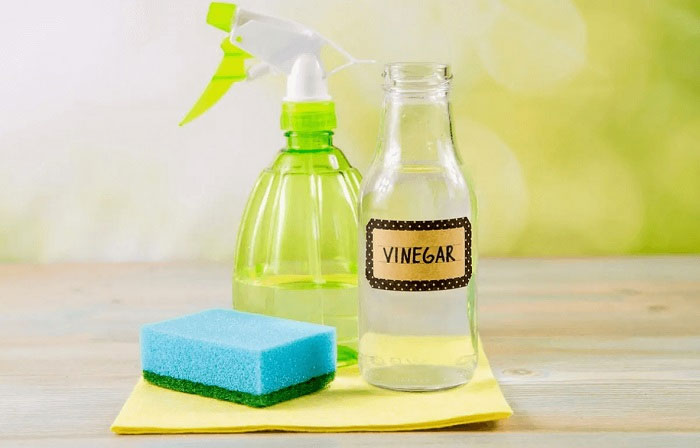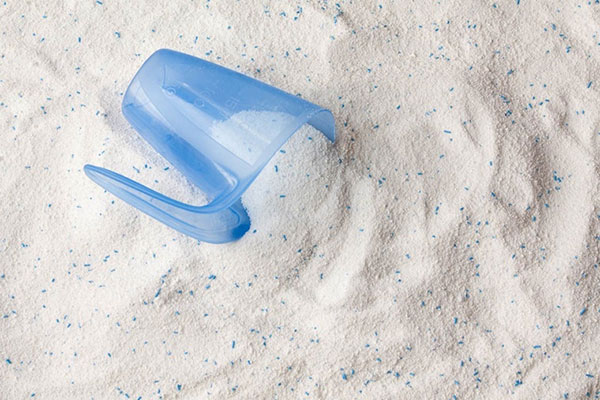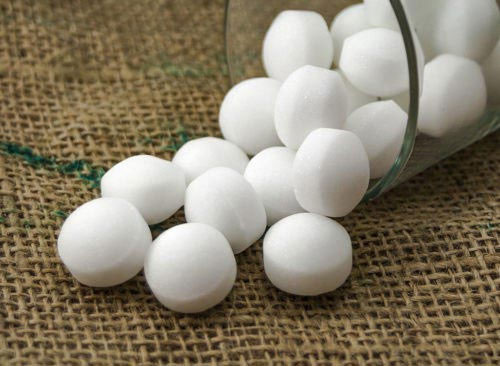At midnight, when the whole family is asleep, suddenly, strange noises can be heard in the house. Is it a thief? No, it’s the sound of mice running and gnawing on things in the house, which disrupts your family’s peaceful sleep, damages belongings, and is especially terrifying for those who are afraid of mice.
Below are effective methods to repel mice; feel free to take a look.
Simple and Cost-Effective Mouse Repellent Methods
Finding mice in your home is quite common, but not everyone knows the effective ways to repel mice. Keep these handy tips in mind if you want your home to be free from these rodents.
Methods to Repel Mice
Using Vinegar

Scientific studies have shown that mice particularly hate the smell of vinegar, making it a cost-effective and easy solution since almost every household has it in their kitchen.
How to Do It: Soak cotton balls in vinegar and place them in areas where mice frequently pass through. The mice will smell the vinegar and leave immediately.
Note: Vinegar’s scent dissipates quickly, so be sure to replace the soaked cotton balls regularly. This might take up a bit of your time.
Using Cinnamon, Chili, Chili Powder, and Garlic
Mice are small creatures that are very sensitive to strong, spicy, and pungent smells; encountering these scents is like torture for them, and these are common spices found in most kitchens, right?
How to Do It: Place cinnamon sticks in the kitchen and in dark corners of the house, and the mice will naturally avoid those areas. For chili powder, fresh chili, and garlic, slice the fresh chili thinly and crush the garlic, then sprinkle them along the paths and around mouse nests to scare the mice away.
Using Essential Oils to Repel Mice

Using scents to repel mice is quite common, but essential oils are the most effective since they are also categorized as a smell that mice despise.
How to Do It: Drop essential oils around the house in areas where mice frequently travel; this will repel the mice while keeping your home smelling fresh.
Note: Essential oils evaporate quickly, so remember to apply them regularly. Otherwise, the mice will return soon, and purchasing essential oils frequently can also become quite costly.
Using Laundry Detergent

How to Do It: Sprinkle laundry detergent in areas where mice travel; the strong smell will scare them away. Alternatively, you can mix laundry detergent with leftover rice; the more stubborn mice that eat it will not return again.
Peppermint to Repel Mice
Peppermint is a plant commonly used for medicinal purposes and essential oil production, making it very effective for repelling mice.
How to Do It: Sprinkle fresh peppermint leaves around areas where mice are active, plant peppermint in your home, or place dried peppermint leaves in kitchen cabinets and wardrobes. The mice will smell it and stay away.
Using Mazut Oil
Mazut oil is a product often found in auto repair shops; you can ask for some. Regular oil changes at these shops result in a lot of this oil, and they will give it to you for free.
How to Do It: Apply mazut oil in areas where mice live; they are very afraid of this smell and will leave quickly. You can also apply it to objects like pipes to prevent mice from gnawing, as licking the mazut oil will cause mice to die from poisoning.
Note: Mazut oil is quite dirty, so be careful to apply it only in places that do not affect the aesthetics of your home or are easy to clean, like smooth tiled floors.
Using Camphor to Repel Mice

We often see people using camphor in wardrobes to repel cockroaches, but it is also a very effective way to repel mice.
How to Do It: Place camphor in wardrobes, bookshelves, and kitchen cabinets, crush it into powder, and sprinkle it in areas where mice live or pass through, such as storage rooms. Alternatively, you can mix camphor powder with white vinegar and spray it in suspected mouse areas, causing them to fear and leave quickly.
Using Ammonia
Ammonia is a very pungent solution (the smell of urine), and inhaling this solution can cause severe shock not only to humans but also to mice. Since mice have a very keen sense of smell, they can die immediately just from smelling freshly sprinkled ammonia.
How to Do It: Sprinkle ammonia around mouse burrows, where you are sure the mice are hiding.
Note: Because ammonia has an extremely strong smell, be cautious when using it; only use it in storage areas that are rarely visited, avoid sprinkling it in the house, and only use this method as a last resort.
Keeping Cats
Cats and mice are natural enemies; wherever there are cats, mice tend to stay away. If your home has too many mice, consider getting one or more cats. Whenever the mice hear a cat meowing, they will not dare to invade your home to destroy belongings, steal food, and create unsanitary conditions that lead to foul odors.
In addition to repelling mice from your home, cats are also lovely pets, providing companionship and helping to relieve stress after a long, tiring day at work.
Repelling Mice with Pepper

Pepper is a spice found in your kitchen; be sure to take advantage of it.
How to Do It: Grind pepper into a fine powder and sprinkle it around mouse burrows and areas where mice run. The pungent and spicy smell of the pepper will drive the mice far away from your home.
Tips for Rodent Control in Your Home
- Always leave an escape route for mice to exit your home; if they feel trapped, they will gnaw on everything around them.
- Keep your home tidy to identify where mice are active and to determine a solution.
- Always maintain cleanliness, especially with food; store it securely, and tightly cover trash bins and food storage areas.
- Mice are nocturnal animals, so always close doors securely to prevent them from entering and causing damage.
- Inspect your home and its nooks and crannies; cracks and holes can allow mice to enter from outside. It’s best to seal these with cement.
What to Do If Mice Keep Coming Back?
The methods for repelling mice mentioned above are very effective; however, mice are quick to adapt and can be quite stubborn. If you find that your attempts to get rid of them are unsuccessful, you may need to take stronger measures.
- Use various types of mouse traps. Some options include: snap traps, glue traps, and several types of homemade traps that you can find instructions for online.
- Utilize sound deterrents. Certain high-frequency sounds can rupture a mouse’s eardrum, killing them, or cause discomfort to their sensitive hearing, making them flee permanently.
- Employ rodenticides. Mice are omnivorous; use poison baited in food to eliminate them. Be cautious if you have pets or small children in the house when using rodenticides.
This is a 2.4m tall robot designed by Elon Musk to implant Neuralink AI chips into your brain
45 planets with water and air similar to Earth have “manifested”





















































